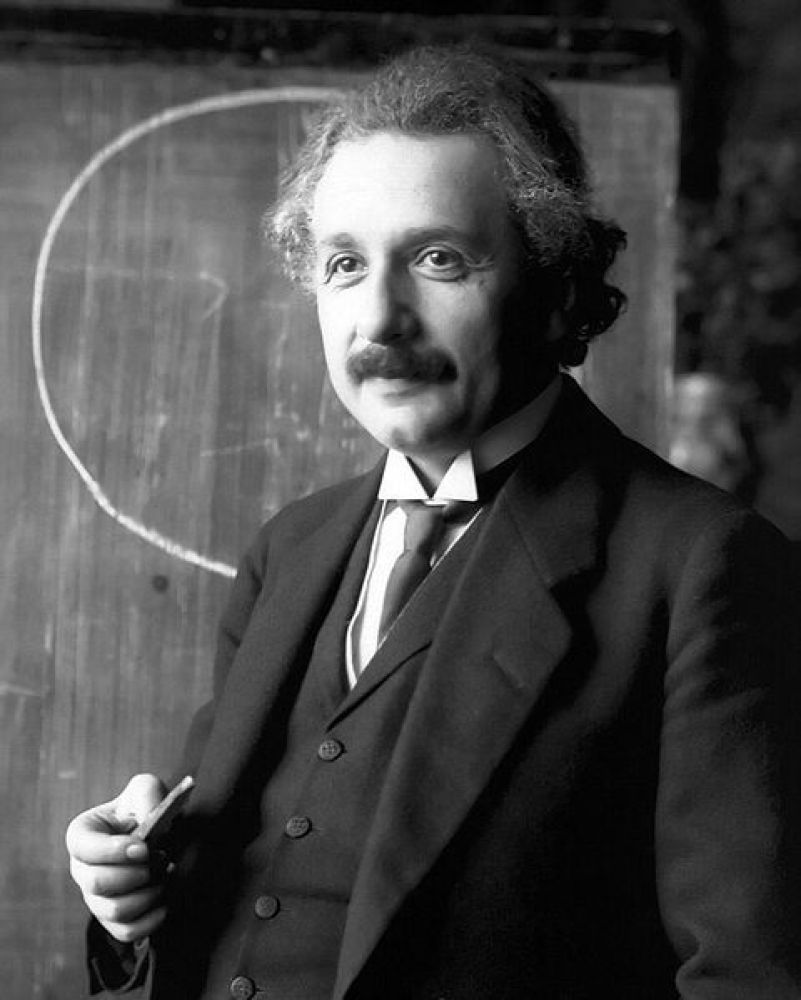
Albert Einstein (1879-1955)
Clarification: While the New York Times noted that "Einstein consistently characterized the idea of a personal God who answers prayers as naive, and life after death as wishful thinking," he also "described himself as an 'agnostic' and 'not an atheist.'" One ambiguous quote, from Einstein's response to a letter from a sixth-grade student named Phyllis Wright, reads "Everyone who is seriously involved in the pursuit of science becomes convinced that a spirit is manifest in the laws of the universe - a spirit vastly superior to that of man, and one in the face of which we with our modest powers must feel humble. In this way the pursuit of science leads to a religious feeling of a special sort, which is indeed quite different from the religiosity of someone more naive." --German physicist, created theory of general relativity.
Source: The Huffington Post. Recommend this post
Let's let the good professor speak a little more clearly.
ReplyDelete"
Though I have asserted above that in truth a legitimate conflict between religion and science cannot exist, I must nevertheless qualify this assertion once again on an essential point, with reference to the actual content of historical religions. This qualification has to do with the concept of God. During the youthful period of mankind's spiritual evolution human fantasy created gods in man's own image, who, by the operations of their will were supposed to determine, or at any rate to influence, the phenomenal world. Man sought to alter the disposition of these gods in his own favor by means of magic and prayer. The idea of God in the religions taught at present is a sublimation of that old concept of the gods. Its anthropomorphic character is shown, for instance, by the fact that men appeal to the Divine Being in prayers and plead for the fulfillment of their wishes.
Nobody, certainly, will deny that the idea of the existence of an omnipotent, just, and omnibeneficent personal God is able to accord man solace, help, and guidance; also, by virtue of its simplicity it is accessible to the most undeveloped mind. But, on the other hand, there are decisive weaknesses attached to this idea in itself, which have been painfully felt since the beginning of history. That is, if this being is omnipotent, then every occurrence, including every human action, every human thought, and every human feeling and aspiration is also His work; how is it possible to think of holding men responsible for their deeds and thoughts before such an almighty Being? In giving out punishment and rewards He would to a certain extent be passing judgment on Himself. How can this be combined with the goodness and righteousness ascribed to Him?
"
Einstein often used the word "spirit" metaphorically, to describe his belief (and he was the first to say that it is a belief founded on faith, not evidence) that the universe is fundamentally intelligible - that is, that it is possible to formulate a set of scientific propositions that can describe it completely.
When he said he was a religious man, that's all he meant.
Sorry, but Einstein didn't believe in supernatural agencies of any kind.
Ruaidhrí, thanks for your comment.
ReplyDeleteMy response will be a quote from the famous Greek philosopher.
“I know that I don't know”. Socrates
In other words I don’t know.
I am just fascinated by life and the universe and I don’t think science has all the answers yet. If scientific journey is 1 million miles then they have travelled a 1 mile so far.
Up to recently scientists believed that they know all there is to know about an atom. Now they found out another particle and they called it “God particle” (nothing to do with God as such or religion) - also known as Higgs Bosom particle. This particle allows the mass to form and, if I understand it right, without Higgs Bosom particle there will be no mass and hence no universe – mystery thickens.
That is quite true. Science will almost certainly never have all the answers.
ReplyDeleteBut what it knows, it can show how it knows. Of this kind of knowledge, religion has exactly none.